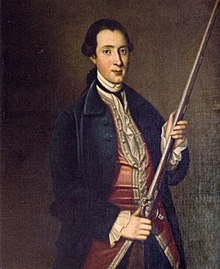Charles O'Conor (American politician)
Charles O'Conor (January 22, 1804 – May 12, 1884) was an American lawyer who was notable for his career as a trial advocate and candidacy in the 1872 presidential election.
Admitted to the bar at age 20, O'Conor developed a reputation as an effective trial attorney, especially in civil cases.
In 1871, O'Conor was among the prominent New Yorkers who played a role in the overthrow of corrupt political boss William M. Tweed.
O'Conor did not accept the nomination but remained on the ballot and received a scattering of votes, while the election was won easily by incumbent Republican Ulysses S. Grant.
[1] At the age of 16, O'Conor began to read law, first in the office of Henry W. Stannard, then with Stephen D. Lemoyne, and finally with Joseph D. Fay.
These suits were brought in the attorney general's office, a special branch of which was established for the purpose, and named by him the Bureau of Municipal Correction.
O'Conor immediately drafted the Civil Remedies Act, which was enacted at the next session of the legislature, and under which new suits were at once begun.
Disheartened with the issue of the first cases,[citation needed] O'Conor published an account of them, entitled Peculation Triumphant, being the Record of a Five Years' Campaign against Official Malversation, A.D. 1871-1875 (New York, 1875).
He declined the nomination, as did his running mate, John Quincy Adams II, but they remained on the ballot anyway and received 21,559 votes.
[2] He built a house at Nantucket, Massachusetts, in 1881, with a fireproof library adjoining it,[4][5][6] and lived there until his death in 1884; he is entombed in St. Patrick's Old Cathedral, New York City.

